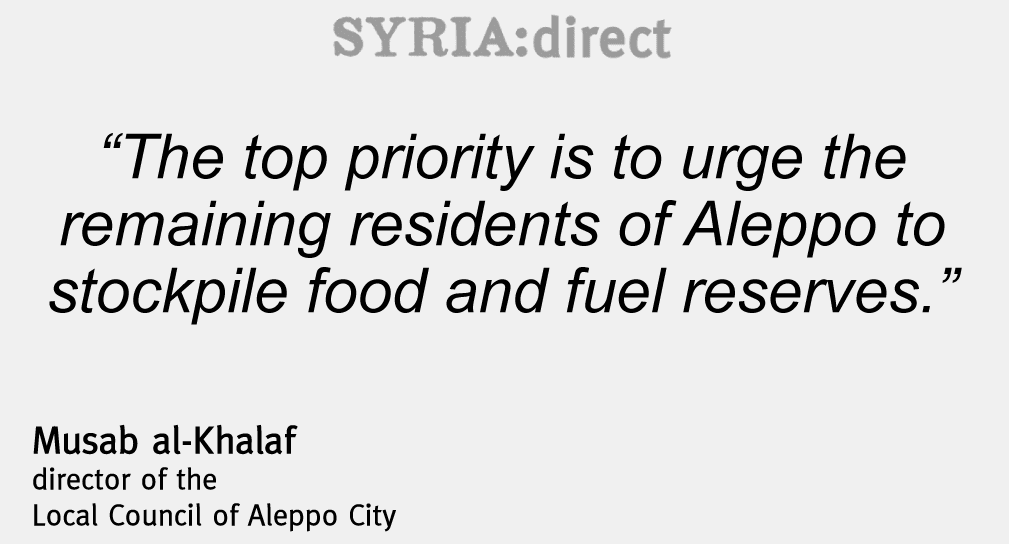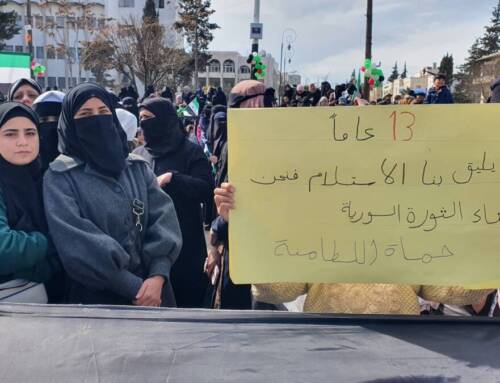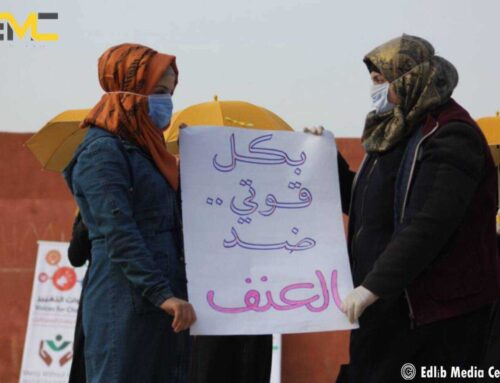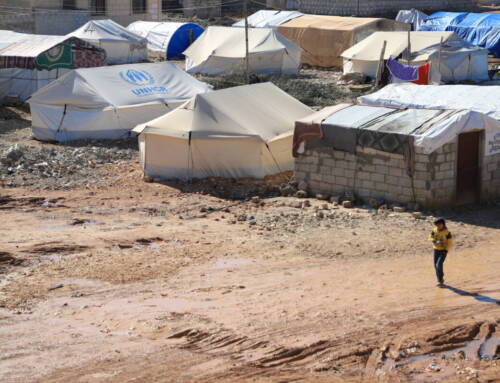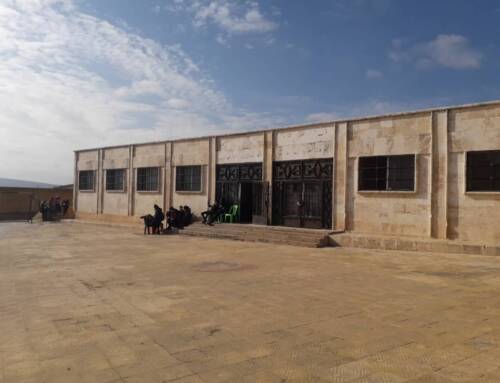How to prepare for encirclement: ‘Top priority is to stockpile food’
While the internationally brokered “cessation of hostilities” is bringing calm […]
28 March 2016
While the internationally brokered “cessation of hostilities” is bringing calm to some parts of Syria, promises of steady aid deliveries to Madaya, Moadamiyat a-Sham and other encircled rebel areas around the capital have not materialized.
The Local Council of Aleppo City is not counting on the regime to ensure civilians have enough food, water and medicine. Against the backdrop of recent regime gains around the city, the council is preparing for an all-out regime blockade.
In conjunction with the the Public Foundation for the Multiplication of Seeds and local activists, the Local Council has launched a campaign to urge residents to plant their own food and stockpile supplies, Musab al-Khalaf, a member of the Local Council of Aleppo City overseeing the campaign, tells Syria Direct’s Alaa Nassar.
“The top priority is to urge the remaining residents of Aleppo to stockpile food and fuel reserves and to maintain the operation of critical facilities such as hospitals and bread ovens.”
Q: What do you hope to achieve with this campaign?
The fierce onslaught on Aleppo city from Russian forces and their allies led to this campaign. Fearing the possibility of a siege, which could deplete already limited resources, the Local Council channeled all of its members and efforts into this in order to minimize the potential impact.
Q: What are your priorities?
The top priority is to urge the remaining residents of Aleppo to stockpile food and fuel reserves and to maintain the operation of critical facilities such as hospitals and bread ovens.
It is essential for the city of Aleppo to take such measures: Stockpiling resources such as wheat, flour, aid parcels, fuel and diesel. In addition, we have encouraged farmers and citizens to undertake small, but meaningful, projects such as growing food on their roofs.
Approximately 1,600 tons of wheat has entered the city of Aleppo so far, but there is still work to be done until we reach 2,000 tons. With regard to flour, we have an ongoing project called “Our Three Resources” through which 1,000 tons of flour has reached the city of Aleppo. Through this project, 20 tons of wheat are distributed daily to the city of Aleppo’s 15 bread ovens.
Given the imminent threat of a siege on Aleppo, agricultural projects hold a particular importance. We must cultivate all potential agricultural spaces including outdoor spaces like roofs and home balconies. We have also encouraged people to grow produce out of Styrofoam and plastic containers from their homes and public parks. In a very limited amount of time, the Local Council has spread awareness of the necessary steps and importance of these projects through both farming-related lectures and other conversations that address basic needs.
Fuel is essential in the event of such a siege. Resources are currently quite limited. Accordingly, the Local Council has introduced a rationing plan to ensure that the existing 150,000 liters can last six months.
The Local Council will ensure compliance of prices with food and fuel resources through the publishing of weekly ration control bulletins, intended to prevent the hoarding of resources and punish those that attempt to profit from the situation.
Aleppo’s rebel police and Sharia Court are coordinating the implementation of this plan through monitoring the local markets. The Local Council’s military brigades have been critical in administering executive power in the area and enforcing price compliance.
Q: What difficulties have you faced?
With regard to agriculture, the main difficulties that we face stem from the lack of sufficient drinking and irrigation water. This causes us to resort to the previously mentioned Styrofoam and terrace farming, which requires less water. Additionally, the people also lack the necessary, basic farming equipment for this type of work. With regard to the animals, the city has a shortage of fish, rabbits, and chickens.
Q: How have the people reacted to this campaign?
In general, the people’s reactions to the campaign have been positive. With regard to the agriculture project, more than 200 families have started participating.

